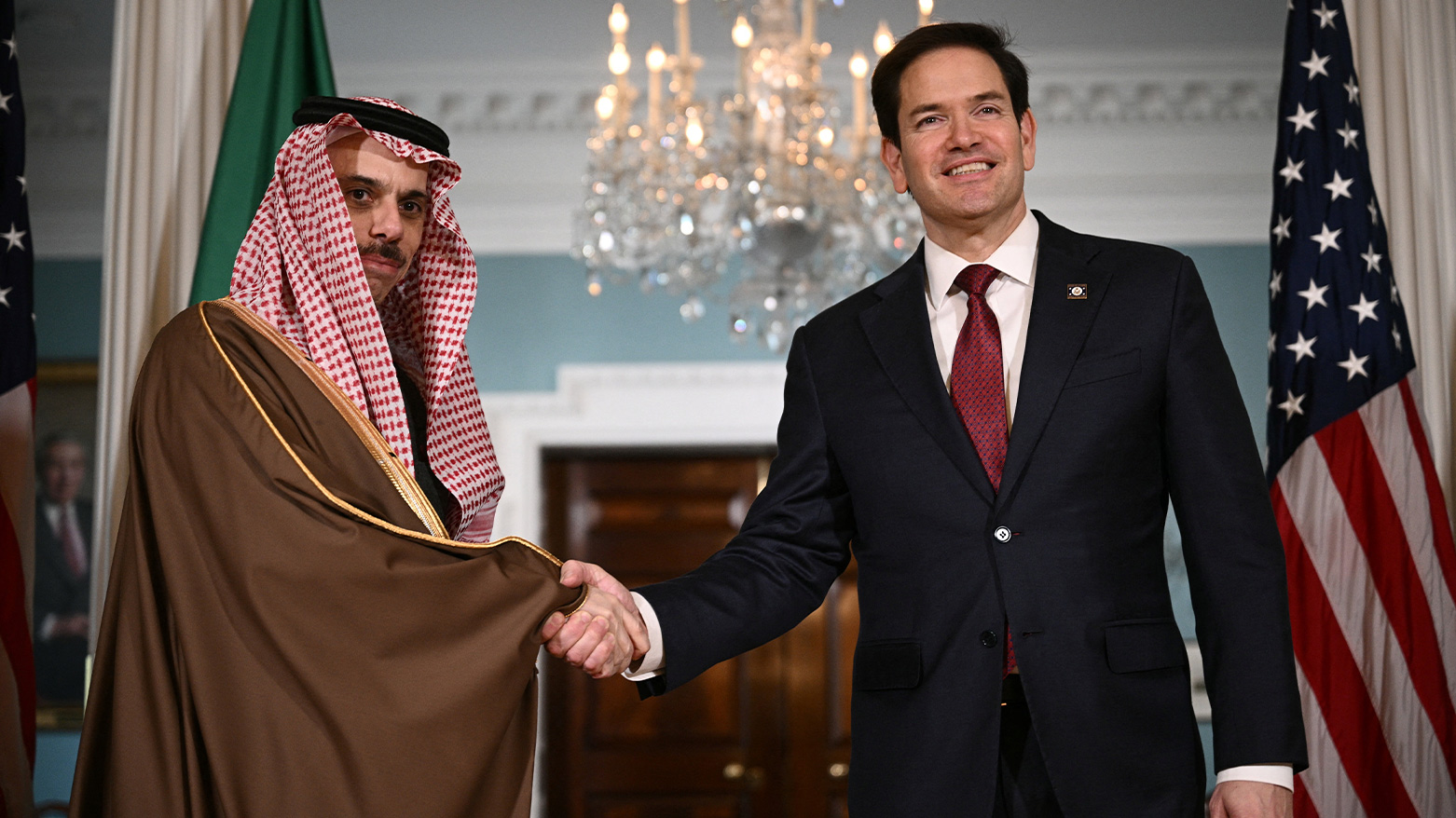US Holds Series of Meetings with Arab Allies Ahead of Meeting with Iranians
It is likely that US officials reassured their counterparts that the forthcoming talks with Iran would take their interests into account.

WASHINGTON DC, United States (Kurdistan 24) - Over the past week, U.S. officials held several meetings and discussions with America’s Arab partners and allies. That includes Saudi Arabia, the Gulf Cooperation Council (GCC), and Egypt.
Iran was not mentioned in the official read-outs of any of those exchanges. However, all three have a keen interest in dealings between Washington and Tehran. The first talks between the US and Iran under the Trump administration will take place on Saturday in Oman. It is, therefore, likely that Iran was part of the conversation.
Saudi Arabia, along with most of the GCC states, as well as Egypt, are threatened by Iran and its proxies. They do not want to see the Trump administration adopt a broad conciliatory posture toward Iran, as the Biden administration did in its first years in office, as it sought to reestablish an accord that would limit Iran’s nuclear program.
As the Trump administration now appears to seek the same objective, it is likely that in their discussions with their Arab counterparts, U.S. officials offered reassurances that any deals would not be made at their expense.
Rather, it is likely that U.S. officials reassured their counterparts that the forthcoming talks would take their interests into account.
Saudi Arabia
Saudi Foreign Minister Prince Faisal bin Farhan Al Saud visited Washington and met with Secretary of State Marco Rubio on Wednesday.
His visit followed that of U.S. Secretary of State Marco Rubio and National Security Adviser Michael Waltz last month to Saudi Arabia, where they met with the country’s de facto ruler, Crown Prince Mohammed bin Salman.
Read More: Rubio, Waltz Meet in Jeddah with Saudi Crown Prince
The Foreign Minister’s meeting with Rubio on Wednesday, most probably, followed up on issues raised in that meeting. In addition, according to media reports, one goal of Al Saud’s trip was to arrange for the visit of President Donald Trump to Riyadh next month.
According to the State Department read-out of the meeting between Rubio and Al Saud, “The Secretary expressed thanks for Saudi Arabia’s efforts to facilitate peace between Russia and Ukraine, increase economic and defense cooperation, eliminate the Houthi threat to the region, and restore freedom of navigation in the Red Sea.”
In addition, both parties took a strong stand against Hamas, which, along with the Houthis, is backed by Iran. As the State Department readout explained, the two senior diplomats agreed to “work towards a durable ceasefire in Gaza, in which Hamas is completely disarmed and disempowered.”
They also discussed the dismal situation in Sudan, agreeing that “the Sudanese Armed Forces and Rapid Support Forces must return to peace talks, protect civilians, open humanitarian corridors, and return to civilian governance.”
Finally, they affirmed “the importance of the U.S.-Saudi relationship and committed to explore ways to further strengthen that partnership.”
Gulf Cooperation Council
The GCC consists of six Arab states. Saudi Arabia is, by far, the largest. The other five, much smaller, states are Kuwait, Bahrain, Qatar, the United Arab Emirates, and Oman.
On the day after the meeting between Rubio and Al Saud, U.S. Deputy Secretary of State Christopher Landau saw GCC Secretary General Jasem Albudaiwi.
A Kuwaiti, Albudaiwi has extensive experience with western countries. From 2022 until 2023, he was Kuwait’s ambassador to Washington, before assuming his post as GCC Secretary General.
Before that, from 2017 to 2022, he headed Kuwait’s mission to the European Union.
Like Al Saud, Albudaiwi also visited Washington. He and Rubio met “to reaffirm the strength of the U.S.-GCC partnership and coordinate on regional priorities,” according to the State Department readout.
“Landau expressed his appreciation for the ongoing cooperation between the United States, the GCC, and its member states and discussed shared efforts to enhance regional security, including the necessity of restoring freedom of navigation in the Red Sea,” it said.
The senior diplomats “underscored the need for collective action to deter threats, promote de-escalation, and advance peace and stability in the region,” it concluded.
Egypt
U.S. Secretary of Defense Pete Hegseth and Egyptian Defense Minister Gen. Abd al-Majid Ahmad Saqr spoke on Tuesday.
Hegseth called Saqr, the Pentagon read-out explained, “to affirm the strong partnership between the United States and Egypt and to discuss opportunities to advance shared interests.”
Cairo has been badly hurt by the Houthi attacks on Red Sea shipping. Those vessels use the Suez Canal, which is a major source of revenue for Egypt.
Last year, the Houthi attacks, which the Yemeni group claims are carried out in support of the Palestinians in Gaza, caused a drop of nearly 2/3 in Egypt’s income from Suez Canal tolls, as ships increasingly took the longer, but safer, route around the southern tip of Africa.
Read More: US Issues Sanctions on Houthi Arms Procurement Networks
Thus, Hegseth and his Egyptian counterpart “discussed the importance of Red Sea security and the reckless actions of the Iranian-backed Houthis, which has negatively impacted the Suez Canal and the global economy,” the Pentagon read-out explained.